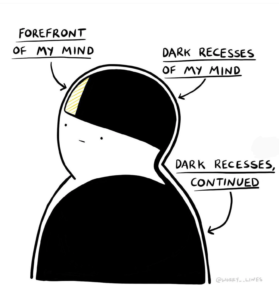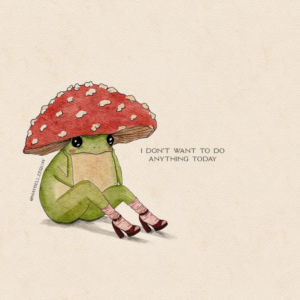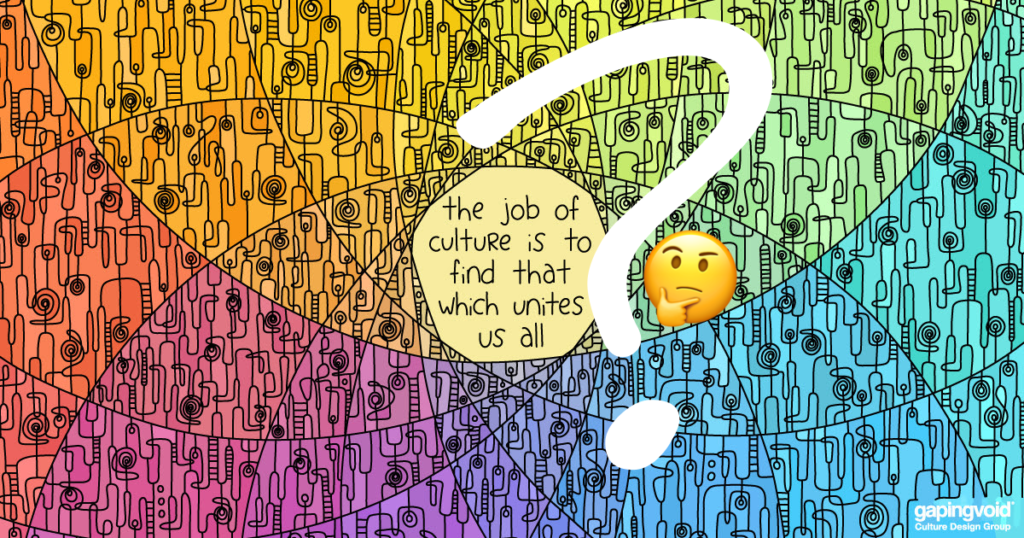It’s hundreds of millions of years old & my mind boggles each time I wander across it <3
en.wikipedia.org/wiki/Sydney_sandstone


It’s hundreds of millions of years old & my mind boggles each time I wander across it <3
en.wikipedia.org/wiki/Sydney_sandstone


8 Sep 2020 – David Gräber: ‘To save the world, we’re going to have to stop working’
Writing as part of Jarvis Cocker’s Big Issue takeover before his untimely death in August 2020, David Gräber explains his confusion about why we’d destroy the planet if we don’t have to
“Our society is addicted to work. If there’s anything left and right both seem to agree on, it’s that jobs are good. Everyone should have a job. Work is our badge of moral citizenship. We seem to have convinced ourselves as a society that anyone who isn’t working harder than they would like to be working, at something they don’t enjoy, is a bad, unworthy person. As a result, work comes to absorb ever greater proportions of our energy and time.
Much of this work is entirely pointless. Whole industries (think telemarketers, corporate law, private equity) whole lines of work (middle management, brand strategists, high-level hospital or school administrators, editors of in-house corporate magazines) exist primarily to convince us there is some reason for their existence. Useless work crowds out useful (think of teachers and administrators overwhelmed with paperwork); it’s also almost invariably better compensated. As we’ve seen in lockdown, the more obviously your work benefits other people, the less they pay you.
The system makes no sense. It’s also destroying the planet. If we don’t break ourselves of this addiction quickly we will leave our children and grandchildren to face catastrophes on a scale which will make the current pandemic seem trivial.
If this isn’t obvious, the main reason is we’re constantly encouraged to look at social problems as if they were questions of personal morality. All this work, all the carbon we’re pouring into the atmosphere, must somehow be the result of our consumerism; therefore to stop eating meat or dream of flying off to beach vacations. But this is just wrong. It’s not our pleasures that are destroying the world. It’s our puritanism, our feeling that we have to suffer in order to deserve those pleasures. If we want to save the world, we’re going to have to stop working.
Seventy per cent of greenhouse gas emissions worldwide comes from infrastructure: energy, transport, construction. Most of the rest is produced by industry. Meanwhile 37 per cent of British workers feel if their jobs are entirely unnecessary; if they were to vanish tomorrow, the world would not be any the worse off. Simply do the maths. If those workers are right, we could massively reduce climate change just by eliminating bullshit jobs.
So that’s proposal one.
Proposal two: batshit construction. An enormous amount of building today is purely speculative: all over the world, governments collude with the financial sector to create glittering towers that are never occupied, empty office buildings, airports that are never used. Stop doing this. No one will miss them.
If we don’t break ourselves of this addiction quickly we will leave our children and grandchildren to face catastrophes on a scale which will make the current pandemic seem trivial.
Proposal three: planned obsolescence. One of the main reasons we have such high levels of industrial production is that we design everything to break, or to become outmoded and useless in a few years’ time. If you build an iPhone to break in three years you can sell five times as many than if you make it to last 15, but you also use five times the resources, and create five times the pollution. Manufacturers are perfectly capable of making phones (or stockings, or light bulbs) that wouldn’t break; in fact, they actually do – they’re called ‘military grade’. Force them to make military-grade products for everyone. We could cut down greenhouse gas production massively and improve our quality of life.
These three are just for starters. If you think about it, they’re really just common sense. Why destroy the world if you don’t have to?
If addressing them seems unrealistic, we might do well to think hard about what those realities are that seem to be forcing us, as a society, to behave in ways that are literally mad.”
Bullshit Jobs: The Rise of Pointless Work, and What We Can Do About It by David Gräber is out now (Penguin, £9.99)
Looking at how people behave around me, it feels like everyone is currently choosing their own control group – sick/non(never)sick, vacced/nonvacced, mingeling/nonmingeling, masked/nonmasked…
as no one can know what the future will reveal about all this, so everyone is making their own bet… risking (re-)infection over isolation(-in|sanity), risking long-term-impact over short term pleasure, choosing blissful or hapless ignorance over trying to navigate the flood of information coming in and changing every day…
I’m in the isolationist/vacced/nonsick/nonmingeling/masked control group… if that keeps me healthy but turns me into an irreparably anxious catweasel hermit, only time will tell… but if I can stay clear from this spread for another while longer I’m gladly following my introvert instincts and stay back…
why the leadership team at work is still calling in the crowds to (voluntarily) join large indoor events is unclear to me, but I guess this is one way to find out which control group will do better… but looking at past events and outcomes it seems that showing up no matter what improves your career, whereas more considerate steps aiming at prevention are a clear show stopper of your career…
so you can stay healthy or rise up the corporate ladder… if you are really lucky you can do both, but it involves more risk taking than I am prepared to accept… so here we are, and I am watching on from the sidelines, and keep comparing the groups… but whichever way this pans out, I have already had my share of sickness, disease and long-term impact in life, I am not keen on adding to that, even if it means I will earn less or have a less fancy title.
to be continued…
This is an excellent write up on what bothers me the most – the societal rot we’re experiencing is true the world over, and it makes me angry and sad that this could just happen, haphazardly and without any consequences other than the turmoil it created…
The Trump effect has helped make Australia’s democracy more untruthful, cynical, angrily partisan, culturally charged, and politicized.
theatlantic.com/ideas/archive/2022/05/australia-election-donald-trump/629798 • by Nick Bryant
I concur
“In the end only three things will matter: How much you loved, how gently you lived, and how gracefully you let go of things not meant for you.”


I had the below proposition sent to me. I then went on Twitter to ask whether that statement is actually correct. The responses were puzzling, expected and surprising at the same time.
So I put it out to you then – what *is* culture’s job?
And – if it is *not* to find what unites us – why do we keep referencing it all the time?
You tell me…

…told in a cake short story :,-D
“Irish and German people offering things”
This week my old boss left the organisation.
When asked what his advice would be to young starters who just joined the org, his answer was:
“Be nice to people, and walk towards the gunfire.”
I am still thinking about this. Not because I am not nice to people, on the contrary, but because I know I am consciously staying away from where the rub is, hiding behind my work, my job, my duties.
Being an “environmentalist”* in Australia makes you fair game in the eyes of many. When I came out here twenty years ago, I soon spiralled into depression and withdrawal because I could no longer speak my mind, as I would get shouted down. (*and the feeling of being a guest on this country kept me from fighting back.)
But now, two decades on, it is probably time to crawl out of that hole and find the smoke stack I need to chain myself on to…
I’ll come back to this one…
(*I should probs add here that back then I did not even know I am one… talking about nature, recycling or saving water was just a normal thing where I came from… but here it was met with deep suspicion and quite advanced closed-mindedness, was told that I am ‘one of them‘, that I want to take away people’s lives or standards and that I’m woke and not realistic and other bullshit…)